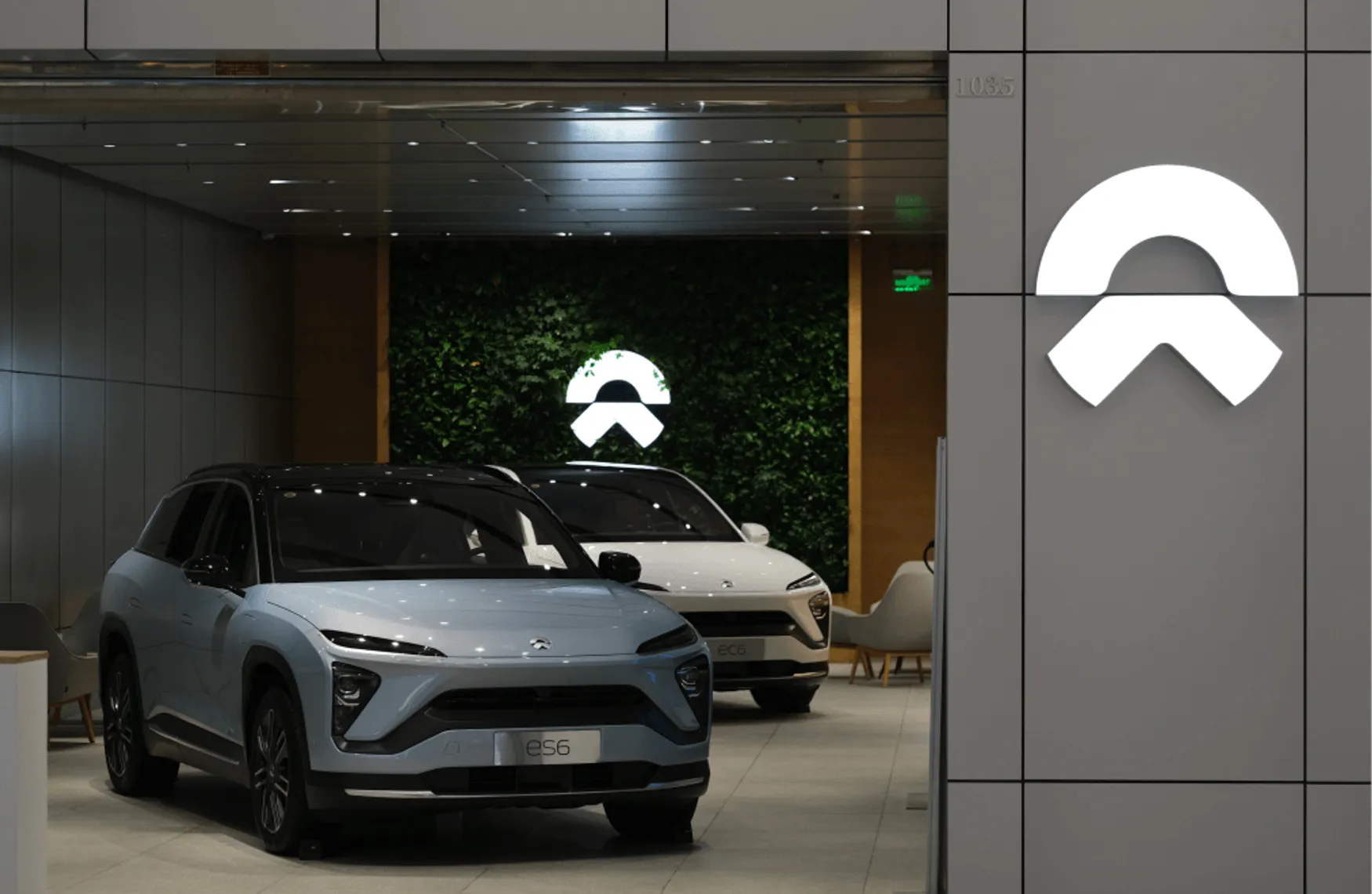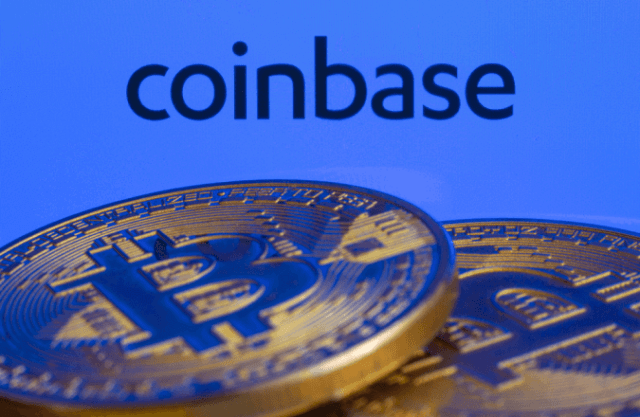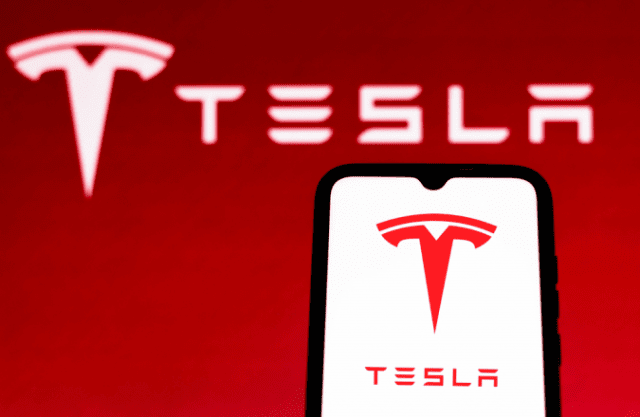How to trade NIO

Learn all about NIO, with information on the company’s history and share price journey, its share trading hours, and how to trade NIO shares with Capital.com.
Go to market page
What is NIO?
Based in Shanghai, NIO is a global electric vehicle (EV) manufacturer. Seen as a key competitor to Tesla and originally known as NextEV, the company was founded in 2014 by William Li, often described as the ‘the Elon Musk of China’. The company’s first model, the EP9, set speed records for an EV at Nürburgring Nordschleife track, but NIO since broadened its offering to deliver mass-market EVs rather than supercars.
NIO first listed its shares in 2018, trading on the New York Stock Exchange under the ticker symbol ‘NIO’. Since the fundraise, the company has innovated with the introduction of battery swapping stations, allowing drivers to replace their depleted battery with a fully charged one in about three minutes, significantly faster than the time it typically takes to charge an EV. Today, the company is seeking international expansion as it seeks to strengthen market share in this competitive and complex industry.
In the 2023 fiscal year, the company’s revenue amounted to some $7.8bn.
What is the NIO share price history?
The NIO share price history began in 2019, at a point when the company faced financial difficulties due to high costs and competitive pressures in the EV market. Consequently, the IPO price of $6.26 fell to around $3 by the end of the year, as concerns surfaced about the ongoing viability of the business and whether sufficient funding could be raised. However, 2020 brought investment from the municipal government of Hefei, helping NIO stabilise its finances. The share price was bolstered by increased EV demand and strong sales, moving from $3 share to around $40, and then $55 in early 2021.
However, 2021 would be a volatile year. A broad market correction across tech and EV stocks, as well as concerns about overvaluation, caused the share price to fall, and global supply chain disruptions and semiconductor shortages also impacted production capabilities.
While the share price recovered somewhat that year, 2022 was another turbulent period. Even while NIO attempted to expand internationally, global economic conditions, including interest rate hikes, inflation concerns, and the economic slowdown in China, affected investor sentiment towards high-growth stocks, and over the year the stock plunged from around $31 to below $10.
2023 brought less volatility as the share price hovered in the $7.50-$10 range, but the first half of 2024 saw it dip below $5 as the firm’s large debt, combined with an interest-rate relatively high in comparison to recent years, as well as ongoing political tensions between the US and China, dampened the spirits of investors.
Past performance is not a reliable indicator of future results.
What factors might affect the NIO live share price?
The NIO live share price can be impacted by a range of key sector-specific fundamental events. Here are a few of the main factors that traders should watch out for.
General financial performance/earnings reports
NIO’s investors and traders should keep a lookout for quarterly earnings, giving key information on revenues, profitability, vehicle delivery stats, earnings per share, and other key metrics to gauge success. If certain results exceed or miss analyst expectations, the share price is likely to move.
Regulatory environment
There are numerous regulations both in China and internationally that can significantly impact how NIO does business. It’s worth keeping an eye on developments such as adjustments in EV subsidies, environmental regulations, trade policies, and foreign investment laws. Factors like Chinese subsidies for electric vehicles or trade tensions between the US and China can significantly affect NIO’s operations and stock price.
Supply chain dynamics
Issues such as a global semiconductor shortage or disruptions caused by geopolitical events, natural disasters, or pandemics can impact NIO's production capabilities and, consequently, its stock price. The ability to manage these supply chain risks is crucial for maintaining production levels and meeting delivery targets.
Competition
The competitive landscape in the EV market, including actions by competitors like Tesla, BYD, and other automakers, can influence NIO's market share and stock price. New product launches by competitors or shifts in market dominance are closely watched by investors.
Economic conditions
Any major macroeconomic events such as interest-rate hikes, economic downturns and high inflation can hit the budgets of would-be customers and suppress demand in the wider EV space.
What are the NIO stock trading hours?
The NIO stock trading hours are Monday to Friday from 2:30pm to 9:00pm (UK time).
If you choose to trade CFDs, you can follow the NIO stock performance live in USD with the comprehensive NIO share price chart.
Monitoring the company’s activity can help you to keep an eye out for any key fundamental or technical events that may affect short-term movements in the share value.
How to trade NIO shares with CFDs
If you want to take a position on NIO shares, you have two options. First, you can buy physical shares in the company through the exchange on which it’s listed. In this case, investing in NIO stock means you will own a share, or shares, in the company. This can be considered a long-term investment, as you’re hoping for the price to rise over time.
Alternatively, you can trade a derivative product such as a contract for difference (CFD) on the underlying NIO stock market price, and speculate on its price movements without actually owning the asset. A CFD is a financial contract, typically between a broker and a trader, where one party agrees to pay the other the difference in the value of a security, between the opening and closing of the trade.
Unlike physical share ownership, you can either hold a long position (speculating that the price will rise) or a short position (speculating that the price will fall). This is considered a short-term investment or trade, as CFDs tend to be used within shorter timeframes.
The key difference between buying physical NIO shares and trading through a derivative is the leverage that is employed with the latter. CFDs are typically traded on margin, which means that a trader has exposure to larger positions with a relatively small outlay. This amplifies the potential profits, but also the potential losses, making leveraged trading risky. You can learn how to trade shares in our comprehensive guide to shares trading.
Why trade NIO CFDs with Capital.com?
Trading NIO CFDs with Capital.com means you’ll enjoy an intuitive, easy-to-use platform, 24/7 support, fair and transparent pricing, along with award-winning education to help build your experience in the markets.* You can seamlessly integrate our smart platform with elite third-party software TradingView and MT4, and refine your strategies with our risk-free demo.
*Awarded best-in-class for education at ForexBrokers.com’s 2024 Annual Awards
FAQs
Who makes NIO cars?
NIO cars are manufactured by NIO Incm a Chinese automobile manufacturer headquartered in Shanghai, specialising in designing and developing EVs. The company was founded in November 2014 by William Li and a group of other automotive and technology entrepreneurs. The company is known for its battery swap stations and advanced autonomous driving features as well as its high-performance electric vehicles, such as the ES8, ES6, and the EC6 models.
Who owns NIO?
The ownership of NIO as of 2024 comprises individuals like co-founders William Li and Lihong Qin, and executive Feng Shen. In terms of its institutional ownership, major shareholders are Baillie Gifford & Co, Blackrock, and State Street.
How much are NIO shares?
As with any asset, the NIO share price is dynamic and liable to change at any time. If you’re trading this stock, it’s important to check out the NIO chart frequently to keep on top of price movements, as well as retain a strong understanding of the fundamental and technical influences that can cause the price to shift.
What market is NIO listed on?
NIO has been listed on the New York Stock Exchange since its IPO in 2018.
How to invest in NIO stocks
Those planning to invest in NIO have the option to buy and own the physical share through means such as a stockbroker or investing platform, with the goal to buy low and sell high. Alternatively, derivatives such as CFDs, can give you leveraged exposure to the underlying price without ownership. However, leverage is risky and means that you may stand to lose more than your initial deposit.
Should I invest in NIO?
Whether you should invest in NIO or trade its shares depends on your own risk tolerance, financial strategies, and market conditions. Technical indicators such as the RSI or MACD may help make sense of historical price action and develop your technical analysis skills. Meanwhile, a knowledge of fundamental factors like competitive standing, earnings releases, and the regulatory landscape are all essential to gain a handle on the fundamental drivers of price.
Visit our other complete guides

How to trade Coinbase
